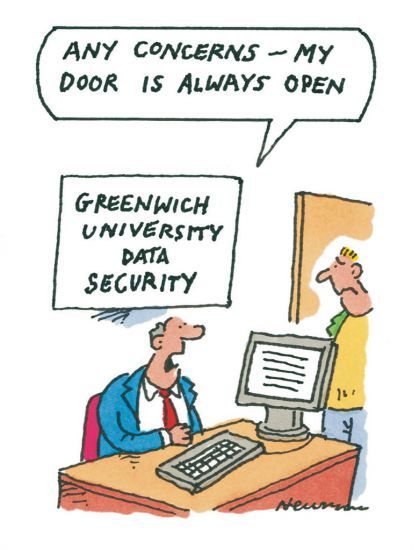
“Free speech on campus should not be seen as a proxy for some of the wider culture wars in our society,” said Sam Gyimah, the UK’s universities minister, in a recent Westminster Hall debate. Perhaps it was a different Sam Gyimah who granted an interview to the Spiked website – known for its temperate, non-culture wars approach to the issue of campus free speech – that appeared on 25 May. The Sam Gyimah interviewed by Spiked warned that “there seems to be the development of a political monoculture” in which some students are “terrified” to speak up in class because they fear “80 per cent of the class disagrees with you…and [one of] them is going to be the one who gives you your grades”. Previous universities ministers would have steered well clear of accusations about the political profile of academics and the nature of teaching in universities. Mr Gyimah is clearly doing things differently while, of course, not getting involved in a culture war.
Why is a university like a chain of Mexican food restaurants? It’s not a joke, but a spicy metaphor deployed by California governor Jerry Brown. As the Sacramento Bee reported on 24 May, he explained himself thus at a California Chamber of Commerce breakfast: “What I like about Chipotle is the limited menu. You stand in the line, get either brown rice or white rice, black beans or pinto beans. You put a little cheese, a little this, a little that, and you’re out of there. I think that’s a model some of our universities need to follow.” He added that if the state’s public universities adopted a “limited-menu concept, everyone would graduate on time”. On a complete tangent, the Bee noted the decline in state funding for universities, “often at the behest of Brown and the [state] legislature”. But surely the key message was Mr Brown’s advice to universities that they “live within their beans” – sorry, “live within their means”.
A very modern-day fracas occurred on Twitter this week after the University of Oxford shared a post calling David Lammy’s criticisms of the institution “bitter”. The Labour MP had labelled Oxford a “bastion of entrenched, wealthy, upper class, white, southern privilege”. As if to prove his point, Twitter soon erupted with cries from privileged alumni arguing that this was simply not the case. But it was a tweet from Oxford’s resident “inner-city northern” student that the institution retweeted. In response, Mr Lammy asked if this view represented the university’s official position – at which point Ceri Thomas, Oxford’s director of public affairs, stepped in to apologise. Luckily, the incident provided the perfect opportunity for social media’s most prominent #humblebraggers to remind us all how clever they are. “I was fortunate enough to attend both Cambridge University and Oxford,” said one user. “Cambridge is more progressive.” Another philosophised: “Maybe the real Oxford was the Cambridge we went to along the way”.
In the wake of the Cambridge Analytica scandal comes a most unlikely villain. The University of Greenwich has been fined £120,000 – reduced to £96,000 with prompt payment – by the Information Commissioner after personal data from almost 20,000 students were made public online. The breach occurred when data were uploaded on to a website made specifically for a training conference in 2004, which was not secured or closed down, the BBC reported. Students’ names, addresses, phone numbers, signatures and dates of birth were included, and in some cases, reports said, individuals’ physical and mental health issues were also able to be found online. The university fell into hot water on another occasion in 2016, when personal data from postgraduate researchers were made accessible through its main website. Greenwich responded to say that it was carrying out a major overhaul of its data protection and security systems.
Did you forget to take your dragon home for the summer break? The University of Wisconsin-Madison would like to know. Posting a message on the community networking site Craigslist, university officials said that a “majestic” bearded dragon, 1ft long, had been found basking in the sun across the street from a student accommodation building. Anyone uncertain as to their pet’s whereabouts was advised to call the Wisconsin-Madison customer services hotline. “Ask to be transferred to Richard Ness, who has the lizard at his shop,” the university advised. Things could be worse for poor Richard – when Lord Byron became a student at Trinity College, Cambridge in 1805, he was reportedly so annoyed by a ban on dogs that he brought a bear to campus instead.
Register to continue
Why register?
- Registration is free and only takes a moment
- Once registered, you can read 3 articles a month
- Sign up for our newsletter
Subscribe
Or subscribe for unlimited access to:
- Unlimited access to news, views, insights & reviews
- Digital editions
- Digital access to THE’s university and college rankings analysis
Already registered or a current subscriber?



